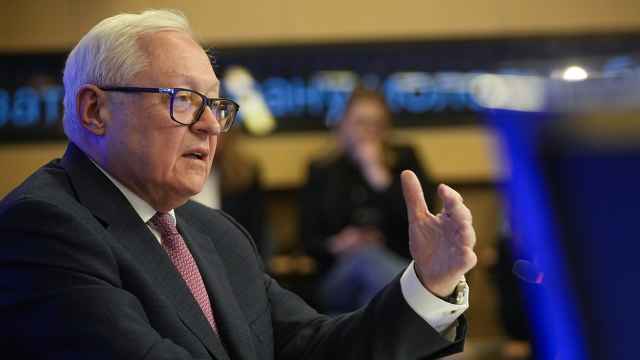The government is drafting measures to force bidders in the sales of state companies to reveal their beneficiaries, giving information about who will ultimately profit from privatization.
The move is aimed at promoting transparency and weeding out corruption during the privatization drive, but some civic watchdogs believe that the regulations could actually become a backdoor means of state-sponsored corruption.
The Investigative Committee is proposing that any entity interested in taking part in state asset auctions or tenders must disclose its initial founders and its beneficiaries or the people ultimately reaping the entity’s profits.
The federal investigation and law enforcement agency is drafting a series of measures aimed at upholding the lawfulness of state asset privatizations, Investigative Committee spokesman Vladimir Markin told Vedomosti, which published the news Tuesday.
The other regulations are intended to protect the privatization process from price manipulations. Those appraising state assets would be criminally liable for intentionally giving groundless information in their evaluations, while executives at state companies would be similarly liable for turning down bids if such a refusal leads to a major loss, Vedomosti reported.
But a lack of transparency at state companies makes it doubtful that these regulations would prevent corrupt asset sell-offs, said Vladimir Rimsky, head of the sociology division at the Indem think tank.
Rimsky said state companies are “totally closed” to outside scrutiny. He added that the government’s anti-corruption fight — an effort allegedly stepped up during the past year — is actually factional infighting rather than a genuine campaign.
As for the proposed regulations on privatization deals, “it is going to become clear in the near future” what entities will use the measures to their advantage, he said.
Rimsky predicted that state companies, which include natural resource extractors, aerospace operations and banks, will do their best to skirt any such regulations because becoming more transparent would be a minus in the current business climate.
“The first company that discloses its information will become uncompetitive with the others,” he said.
In addition to their potential for misuse by state companies themselves, the measures could also be abused by the Investigative Committee, which will see its authority widened under the proposals.
The batch of proposals will make it possible for law enforcement to meddle in state tenders, a member of the presidential anti-corruption commission, Anatoly Kucherena, told Vedomosti. That could create another means for crookedness, he added.
Kucherena suggested publication of the names of all the founders and beneficial owners of the companies in question. That would publicize any financial ties between officials and state companies.
A Message from The Moscow Times:
Dear readers,
We are facing unprecedented challenges. Russia's Prosecutor General's Office has designated The Moscow Times as an "undesirable" organization, criminalizing our work and putting our staff at risk of prosecution. This follows our earlier unjust labeling as a "foreign agent."
These actions are direct attempts to silence independent journalism in Russia. The authorities claim our work "discredits the decisions of the Russian leadership." We see things differently: we strive to provide accurate, unbiased reporting on Russia.
We, the journalists of The Moscow Times, refuse to be silenced. But to continue our work, we need your help.
Your support, no matter how small, makes a world of difference. If you can, please support us monthly starting from just $2. It's quick to set up, and every contribution makes a significant impact.
By supporting The Moscow Times, you're defending open, independent journalism in the face of repression. Thank you for standing with us.
Remind me later.





